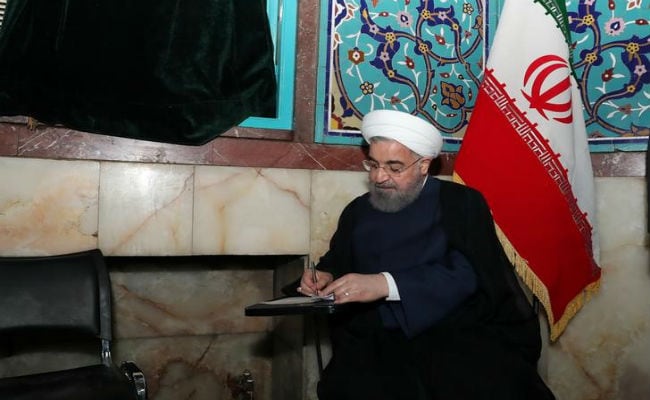
About 61 million of Iran’s population of more than 85 million are eligible to vote (document)
Tehran, Iran:
Iranians went to the polls on Friday to elect members of a new legislative body and the Assembly of Experts, a key body responsible for electing the Islamic Republic’s supreme leader.
Since the last election, Iran has been severely affected by international sanctions, leading to an economic crisis, rocked by widespread protests in late 2022 and into 2023, and embroiled in escalating regional tensions over the Israel-Hamas war.
Here are five things to know about the election.
Turnout concerns
Iran holds parliamentary elections every four years and a conference of experts every eight years.
About 61 million of Iran’s more than 85 million people are eligible to vote.
Around 59,000 polling stations will be opened across Iran for single-round elections, mainly in schools and mosques.
Top state officials urged people to vote, but there was widespread speculation that turnout would be low.
Iran’s current parliament was elected in the 2020 vote with a turnout of only 42.57%, the lowest turnout since the 1979 Islamic Revolution.
A recent poll conducted by Iran’s state television found that more than half of respondents were indifferent to the election.
Parliament’s role is limited
The parliament consists of 290 members and is a unicameral parliament called the Islamic Consultative Assembly.
Candidates must be vetted by the Guardian Council, whose members are appointed or approved by the top leader, before they can run.
The Guardian Council’s jurists have approved some 15,200 candidates out of nearly 49,000 applicants to run for parliamentary seats.
Parliament’s powers are limited and any legislation it passes requires the approval of the Guardian Council’s jurists.
The legislative body includes representatives from Iran’s constitutionally recognized religious minorities, including one each of Assyrians, Jews and Zoroastrians, and two each of Armenian Christians.
Conservatives in power
Candidates for parliamentary seats mainly belong to two camps: conservatives and reformists.
Iran’s current parliament is dominated by conservatives and ultra-conservatives, and observers expect the new parliament to have a similar composition.
Some sitting MPs have been disqualified from re-election.
Some reformists criticized the election, with former President Mohammad Khatami saying this month that Iran was “far from free and competitive elections” quoted by the conservative Java daily.
Choose a supreme leader
The Assembly of Experts consists of 88 members, all composed of male Islamic scholars.
Its mission is to elect, supervise and, if necessary, remove the supreme leader, who has the final say on all affairs of the country.
In 1989, after the death of Ayatollah Ruhollah Khomeini, the founder of the Islamic Republic, the General Assembly elected the current supreme leader, Ayatollah Ali Khamenei, 84 years old.
The 97-year-old ultraconservative Ahmed Janati is the current speaker.
Candidates for parliament were also vetted by the Guardian Council, which approved 144 candidates.
Former moderate President Hassan Rouhani, a member of the moderate party for 24 years, said he had been barred from serving as an MP.
women representatives
Iranian women have the right to vote, and there are 30 million voters.
According to data from the Ministry of Interior, nearly 12% of the total number of candidates running for seats are women.
According to the official IRNA news agency, there are 16 female members of the current parliament.
The elections will be the first since the death of 22-year-old Mahsa Amini in police custody in September 2022.
Amini was arrested for allegedly violating the Islamic Republic’s strict dress code for women.
Her death sparked widespread protests that left hundreds dead, including dozens of security personnel.
(Except for the headline, this story has not been edited by NDTV staff and is published from a syndicated feed.)






